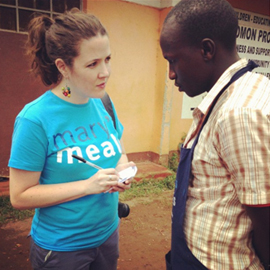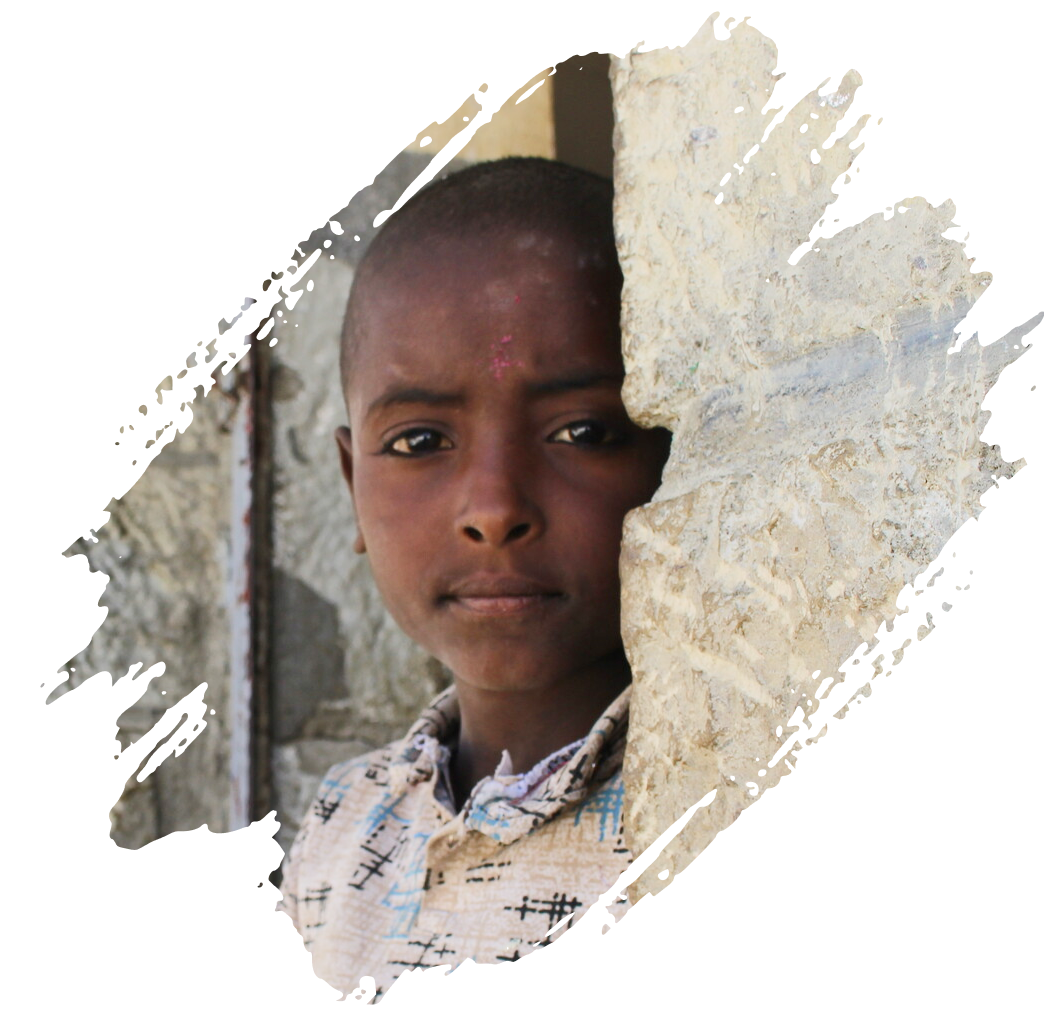A Mother’s Reflection Returning from Tigray
"I didn't know, but I hear you now and your lives are worth saving"
On my way back from Tigray, Ethiopia, I sat on the plane, hunched over my phone, typing furiously. I sent myself message after message of notes. I should have been trying to sleep, especially as – after a week away – I'd be straight back to mom duties with my six- and two-year-old when I got home. Maybe it was my way of processing some of the horrors I'd just seen.
I’ve barely stopped writing since. Having seen the tragedy that’s unfolding across the region – and met people who survived two years of hellish war just to step into a catastrophic drought – the small team I work in at Mary’s Meals wants to try every viewpoint and approach every news outlet that could help get the story out about what is happening in Tigray. After years of media blackout, so few people are talking about what’s happening there and I’m starting to question how many people even know.
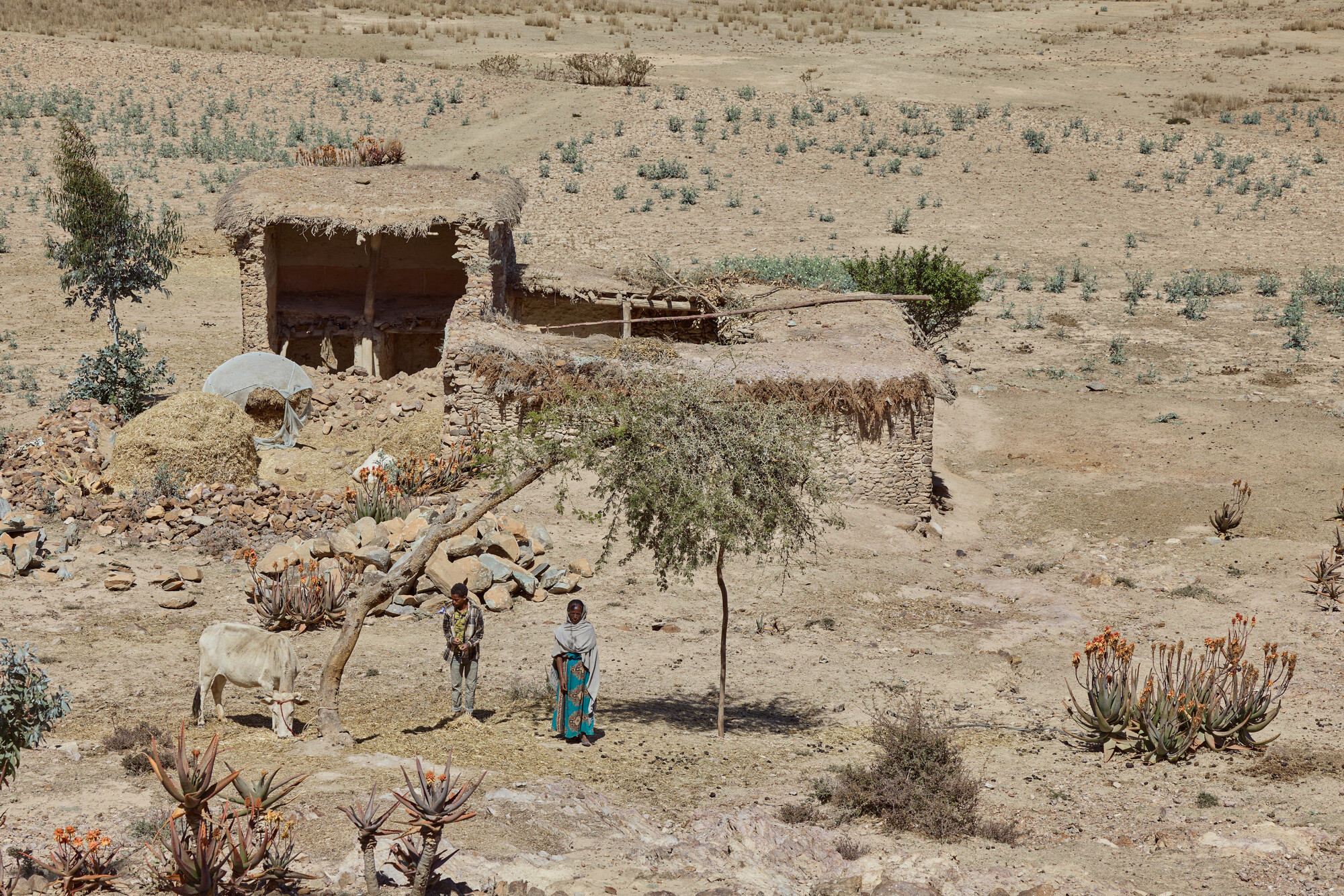
I want to tell everyone. Yet, I sit at home in Glasgow and wonder where to start. I question whether I’ll be able to find the right words, or if I’ve got the emotional resilience to explore it from this perspective – as a mother of young children. After what was quite a draining experience, can I really face comparing the opportunities and life chances of my own two boys against those I saw clinging to life in the ward for severely malnourished children at the hospital in Mekelle? What an unbelievable and unfair luxury it is that I might put off writing about it, when others are living with this level of fear and starvation, completely dependent on help that doesn’t seem to be coming, every minute of the day.
As I try to find the words, I’m conscious that this probably isn’t what people want to be reading about. It’s uncomfortable, and people’s instincts can tell them to turn away. And with so many other horrors playing out in the world right now, adding yet another grim situation to the list might just feel like one burden too many to carry. I look at my own children and know I can’t bear to read every story about children suffering in Gaza or Ukraine or Haiti or Sudan – I know, my privilege is showing again. The truth is, I can’t stop thinking about the sadness in the eyes of the children I met, and the heartbreaking stories they shared with me.
But I found glimmers of hope in Tigray too, and when I try to share the stories of what I learned there with my family – censoring them to make them appropriate for my six-year-old – it’s the possibility for change that I focus on.
.jpg)
This was my second visit to Ethiopia. I travel quite a bit through my job at Mary’s Meals and so I’ve visited our school feeding program in several countries. But I remember thinking Ethiopia is the place I would love to take my own kids. To see the most spectacular scenery, explore the welcoming towns, and spend time with the kindest colleagues I could imagine; people I now hope I can call friends.
That thought, of course, was before the war; before the brutal conflict that stole so much from people and started them on this terrifying path that many are fearing will end in a famine worse than the one many of us remember happening in the same region in the early 80s.
A few weeks ago, I sat with mothers who are terrified of the months ahead and already worried about how they will feed their children; and fathers who cried about what the war has done to their family and how they have lost all hope; and children – children who just looked at me and couldn’t say anything at all.
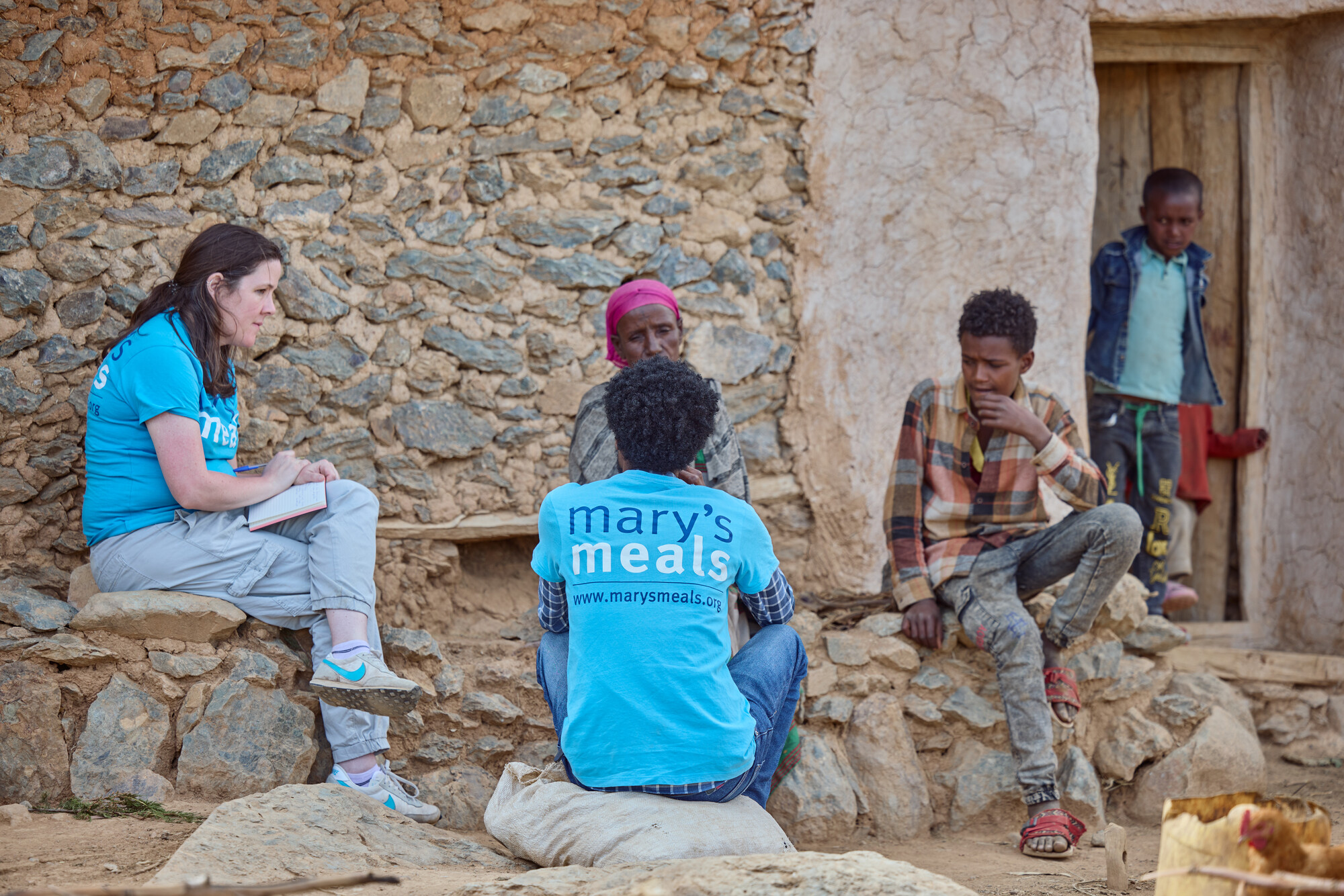
As a mom, I worry about my children. Sometimes if I stop and think about it too much, my need for them to be safe and well is a bit overwhelming and the thought of something happening to them is, well, quite terrifying.
When they are newborns, we worry. Are they too cold, or too hot? Are they feeding well and putting on the right amount of weight? Are we holding them too often, or not reading to them enough? And the lists go on and on. As they grow, some of these worries get replaced with new ones – are they doing their homework, drinking enough water, being polite to their teachers? And I like to think I’m quite a relaxed parent!
My two-year-old is in that phase now where his previously varied diet has been replaced with a desire only for beige carbs. And so, I worry about him feeling hungry – as well as anxiously pondering the nutritional value of a diet based on plain pasta and toast.
I make multiple cupboard trips each day – especially when they get grumpy and it’s clear they’re either tired or hungry – and find myself suggesting: ‘do you want a banana? … a yoghurt?... at least have some Weetabix!’
It’s often these little moments, in the last few weeks since I came home, that have caused me to pause and think of the children I met. Buttering a slice of toast as an afternoon snack and knowing that it’s more than Mahlet or Lewte will get all day. Marvelling that Selemon has any energy or motivation at all to get up and make his way to school – and realizing that doing so in the face of such hunger is an act of defiance in itself. The children I met want to have an education, they desperately want to have a ‘normal’ life, and not have to work or beg, or risk everything by leaving their home to cross borders they don’t want to cross just in the hope that things might be a little bit easier somewhere else.
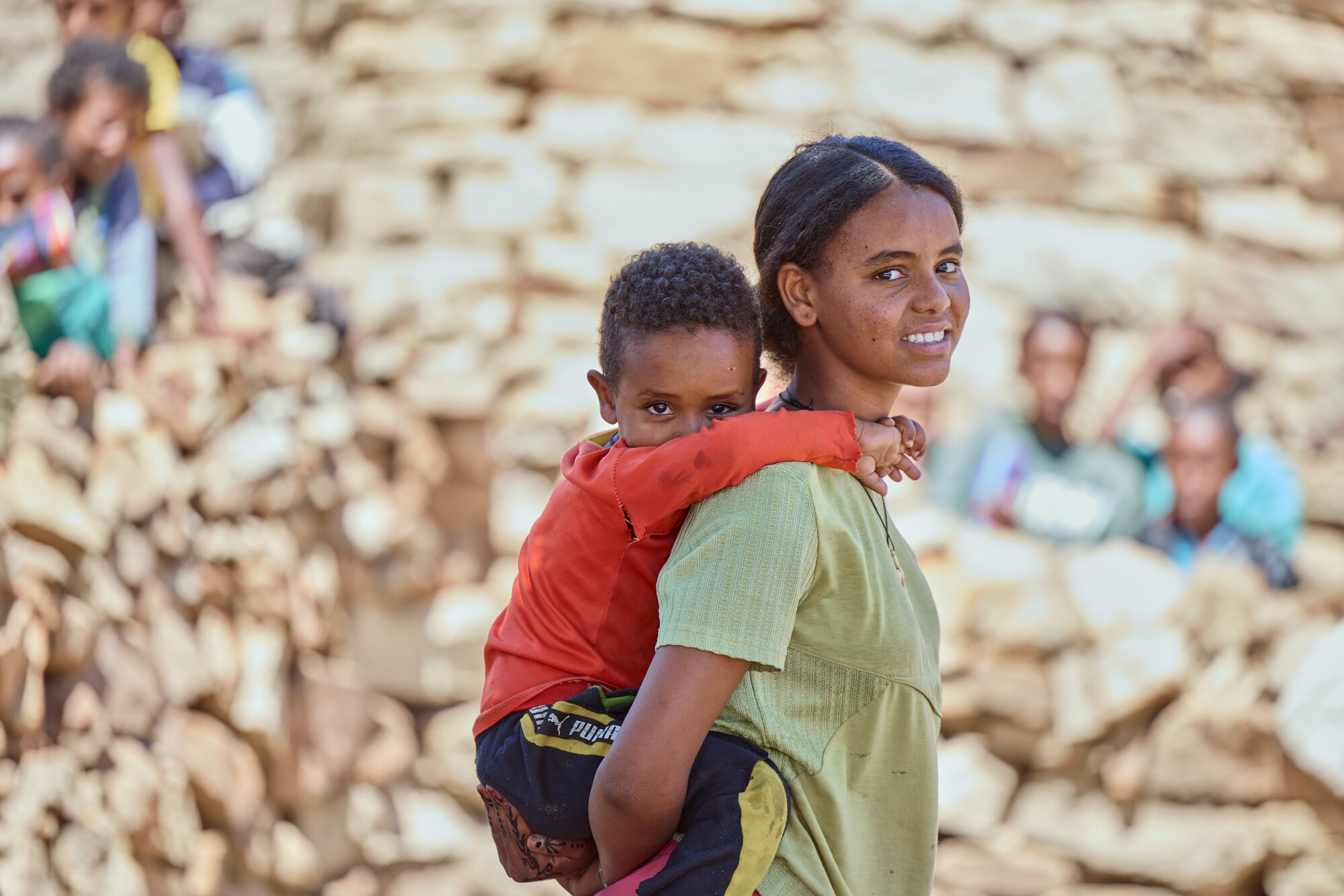
The strength it must take for a child to get up every day and keep going under such conditions, there aren’t words to describe it.
The grief mothers must have to endure every time one of their children cries for a piece of bread they don’t have to give them.
Can you imagine?
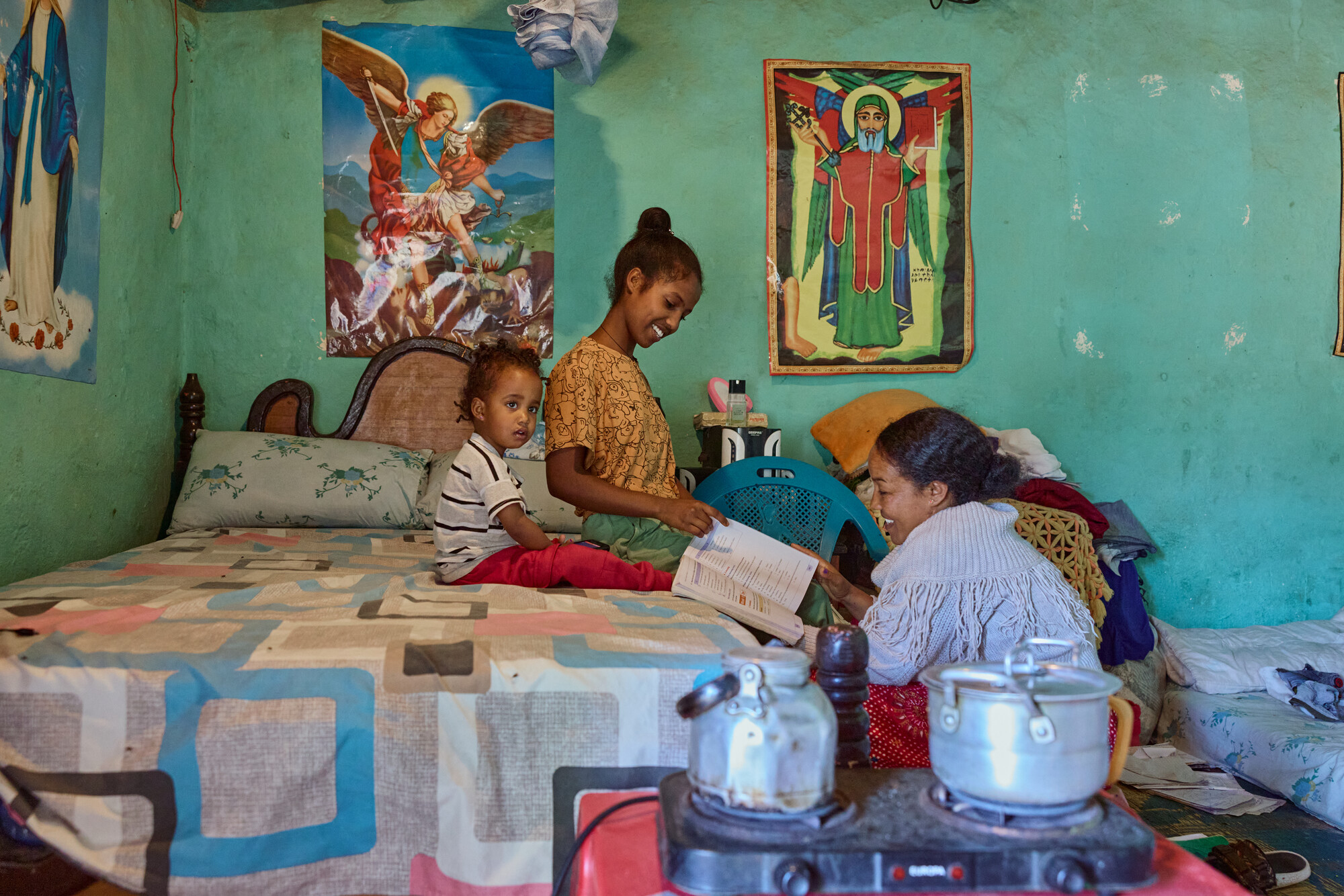
I think as a mother, the stories I heard of impossible choices were perhaps some of the most heartbreaking. Mothers who are having to look at all their children, decide which one looks like the weakest, and let them have the bread while their siblings go without. Mothers who have to choose which one of their children might go to school, because they can only afford to send one. Mothers who have to decide if they’ll send their daughter to work as a servant, or out to the streets to beg.
These are the stories that sit with me as I try to focus on bedtime stories in Glasgow and hug my children that bit tighter. At times, I don’t ever want to let them go.
If I found it upsetting just hearing about the choices mothers have to make; I can’t begin to comprehend actually having to make them.
.jpg)
But there are some choices we do have. And that’s what I’ve told my sons. I try to gently explain that some children don’t have the toys that they do, that they are so hungry they aren’t able to go to school. At the tender age of six my son looks alarmed at this news and straight away suggests: “take some of my toys with you the next time you go to Africa”. He makes his choice to try to help. And it’s not as naïve as you might think.
While some conflicts and complex situations seem impossible to change, the Mary’s Meals school feeding program is already saving lives in this troubled region of Ethiopia. One pediatrician I met (who had received school meals himself as a child) told me the future of Tigray depends on school feeding.
Throughout the world I’ve seen the impact of reliable school meals on a child. I’m not sure Mary’s Meals has ever been needed more than it is right now in Tigray, and with such a program, change is possible. We can improve the health and happiness of children and bring them back to school – ensuring a chance at a future — if we choose to help them. If we choose to listen to their stories and say, ‘I’m sorry I didn’t know, but I hear you now and your lives are worth saving.’
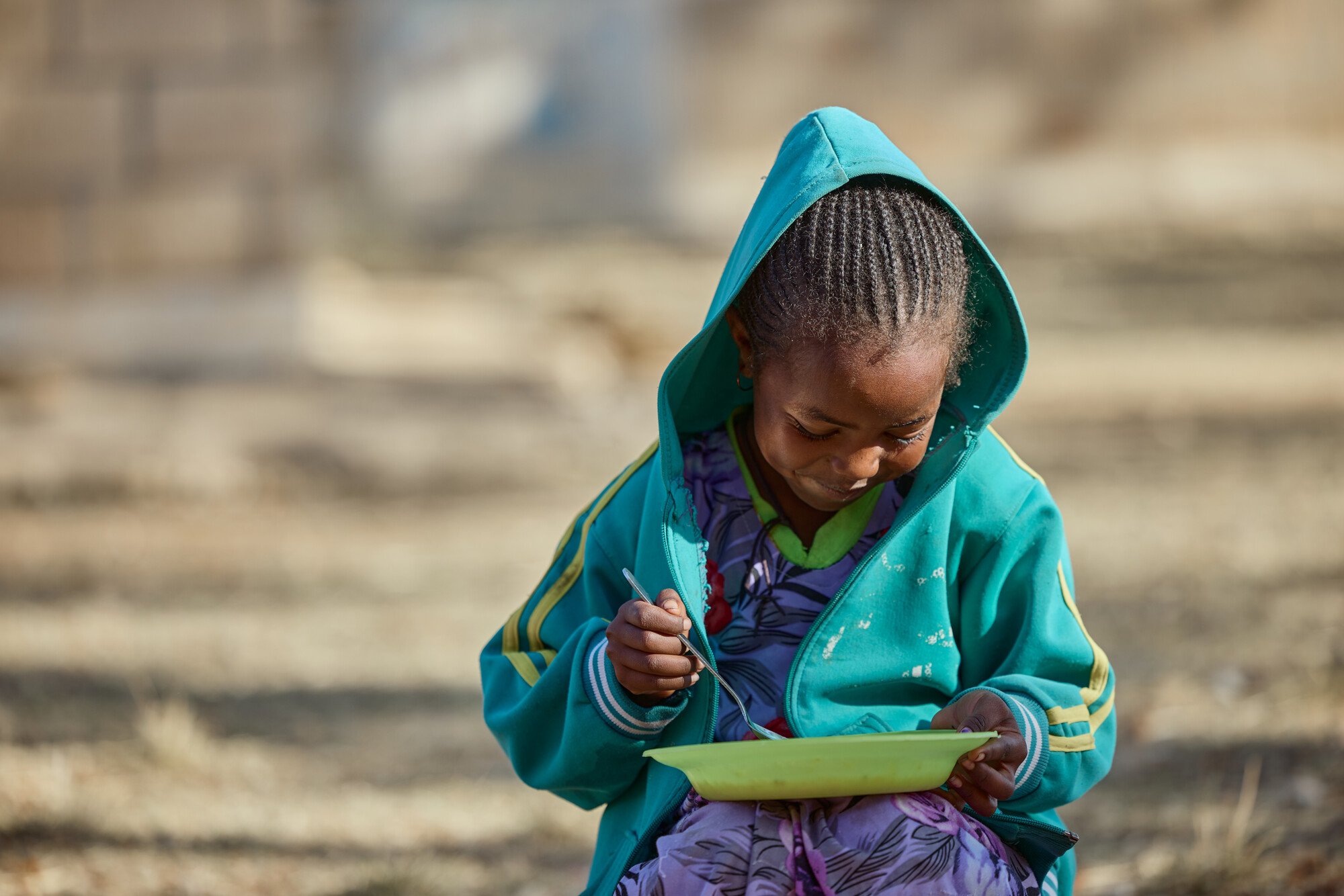
On my last day in Ethiopia, our friend and partner said that he hoped the visit had given us a renewed sense of purpose and determination, to try to provide more school meals that wouldn’t just ensure survival, but would ‘open up hope for a prosperous future for all our children.’ Despite the desperate circumstances, the parents I met dare to hope for more than scraps of food for their children. They want them to have a better life than they have had. Isn’t that what all parents want?
I want a prosperous future for my children, but there can’t be one for them while children in Ethiopia starve to death. In the months ahead, the international community might finally wake up to the suffering in Tigray. As the death toll rises, it will probably become a huge news story, but how much worse will it have to get before then? How many futures will be lost if those of us who know fail to act?
My six-year-old chooses his own way of helping, I beg you to do the same.
Shona Shea, Senior Content Manager, Mary’s Meals International.
